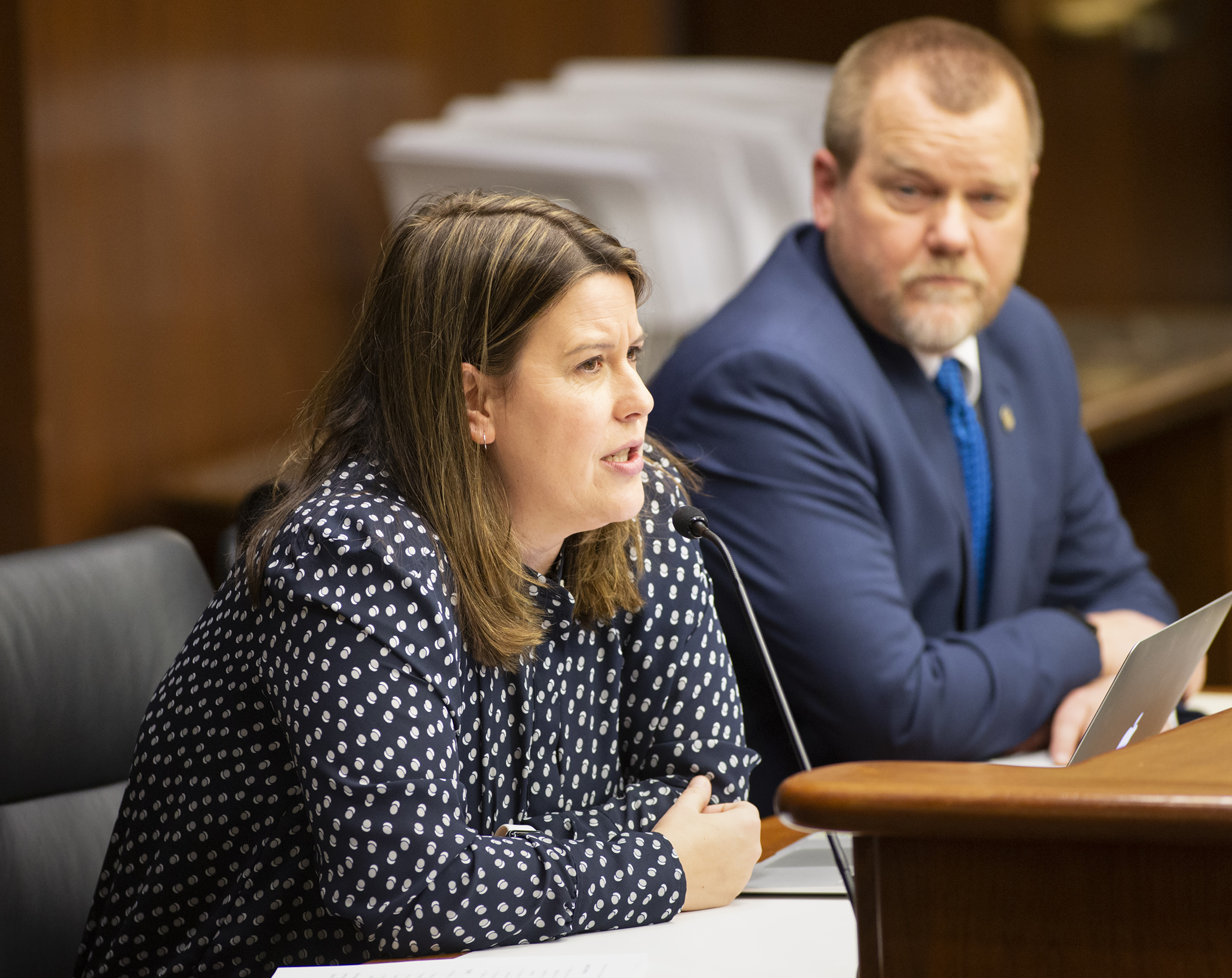Bill aims to put an end to lunch shaming students

As reports of lunching shaming persist, advocates say more pressure needs to be put on school districts to stop this practice.
Sponsored by Rep. Tony Jurgens (R-Cottage Grove), HF55 would require schools that participate in the national school lunch program to adopt, post and adhere to a policy, and provide meals in a “respectful manner.”
“My feeling is that while the school districts deserve to be paid for those lunch meals, that’s a transaction that should be done between the school district and the parents and not the kids,” Jurgens said.
The bill was held over Wednesday by the House Education Policy Committee for possible omnibus bill inclusion. The companion, SF411, sponsored by Sen. Susan Kent (DFL-Woodbury), awaits action by the Senate E-12 Finance and Policy Committee.
The proposal would reinforce existing law that prohibits schools from using demeaning practices to collect lunch debt. Jessica Webster, a staff attorney with Mid-Minnesota Legal Aid said that despite the law, some schools continue to use these practices and referenced incidences, including staff taking and tossing students’ lunches, public shaming, disciplining and limiting student participation in activities.
“Minnesota was really at the forefront of starting to address lunch shaming, and so I think we’ve been disappointed to see that there’s still some districts that are still using some of these practices,” she said.
Under the bill, each school’s posted policy would need to address:
- student meal charges and collections practices;
- a prohibition on taking away meals from students who are unable to pay;
- ensuring that a student eligible for free and reduced-price lunch is always served a reimbursable meal; and
- ensuring third-party meal vendors know the policy and adhere to it.
Schools in noncompliance with the rule would receive notice from the Department of Education, and would need to respond and remedy the practice within 60 days.
Jurgens initially brought forward the anti-lunch shaming proposal last year, and has since worked with a variety of stakeholders who were concerned about restrictive language, which would limit a district’s ability to recoup unpaid funds and in turn lead to budget deficits. This proposal allows districts to continue collection of unpaid debts.
“I think what we have here is a good bipartisan solution, that a lot of the stakeholders have had input on that made this bill what it is it today,” Jurgens said. “If we take it further down the road, that’s for another day.”
Webster said that Legal Aid, while not fully supportive of collection practices, understands the need for them and ultimately is supportive of the revised bill.
“We don’t love collection on low-income families for something that should be a basic need for kids,” she said, “but to us collection is a way to keep the transaction between adults and so we haven’t really addressed changing that at this time.”
Related Articles
Search Session Daily
Advanced Search OptionsPriority Dailies
Legislative leaders set 2026 committee deadlines
By Lisa Kaczke Legislative leaders on Tuesday officially set the timeline for getting bills through the committee process during the upcoming 2026 session.
Here are the three deadlines for...
Legislative leaders on Tuesday officially set the timeline for getting bills through the committee process during the upcoming 2026 session.
Here are the three deadlines for...
Latest budget forecast projects nearly $2.5 billion surplus, but red ink down the road
By Mike Cook Three weeks before Christmas, state budget officials provided some merriment to Minnesotans. However, Grinch-like transformations lurk.
Released Thursday, the November ...
Three weeks before Christmas, state budget officials provided some merriment to Minnesotans. However, Grinch-like transformations lurk.
Released Thursday, the November ...